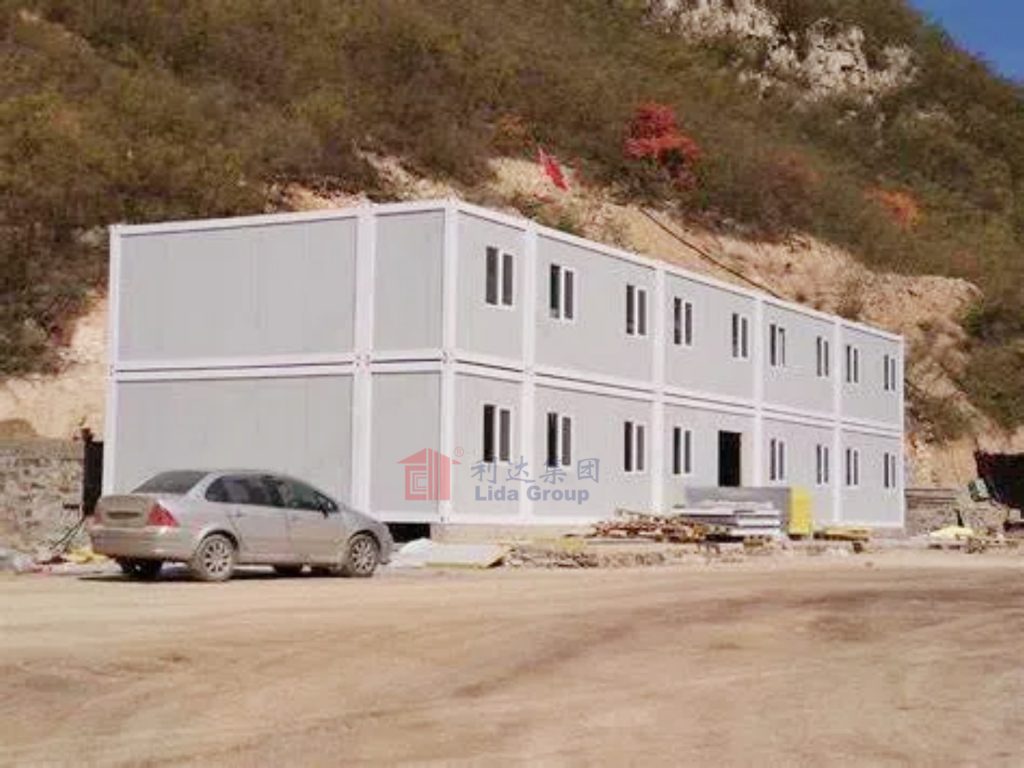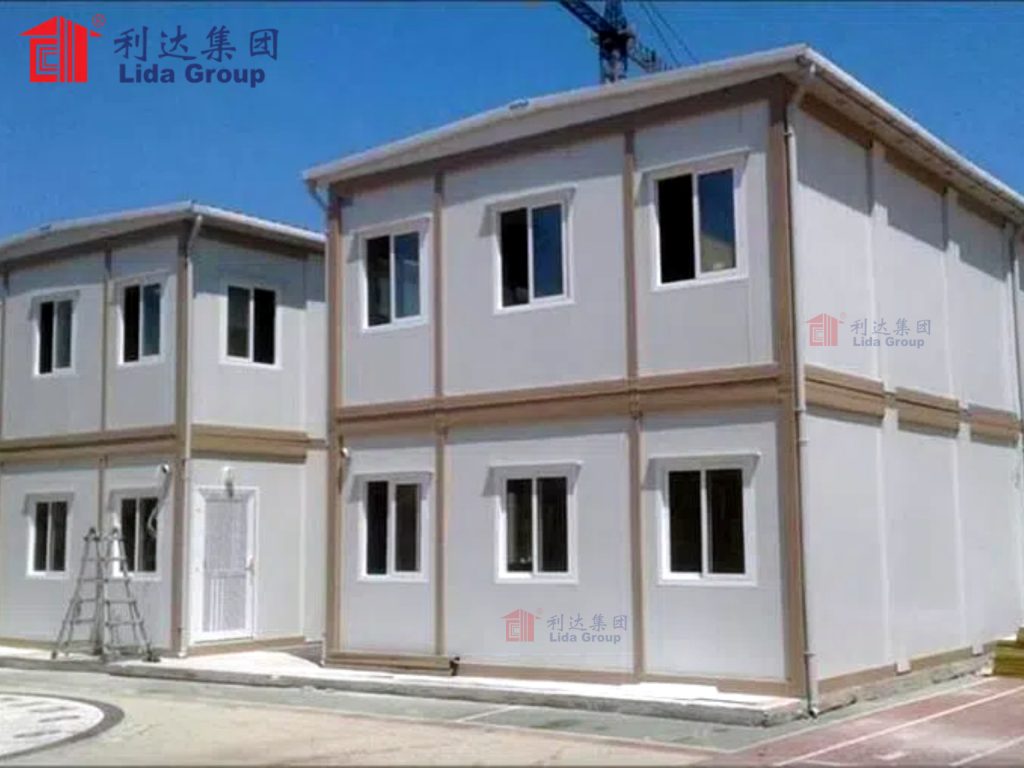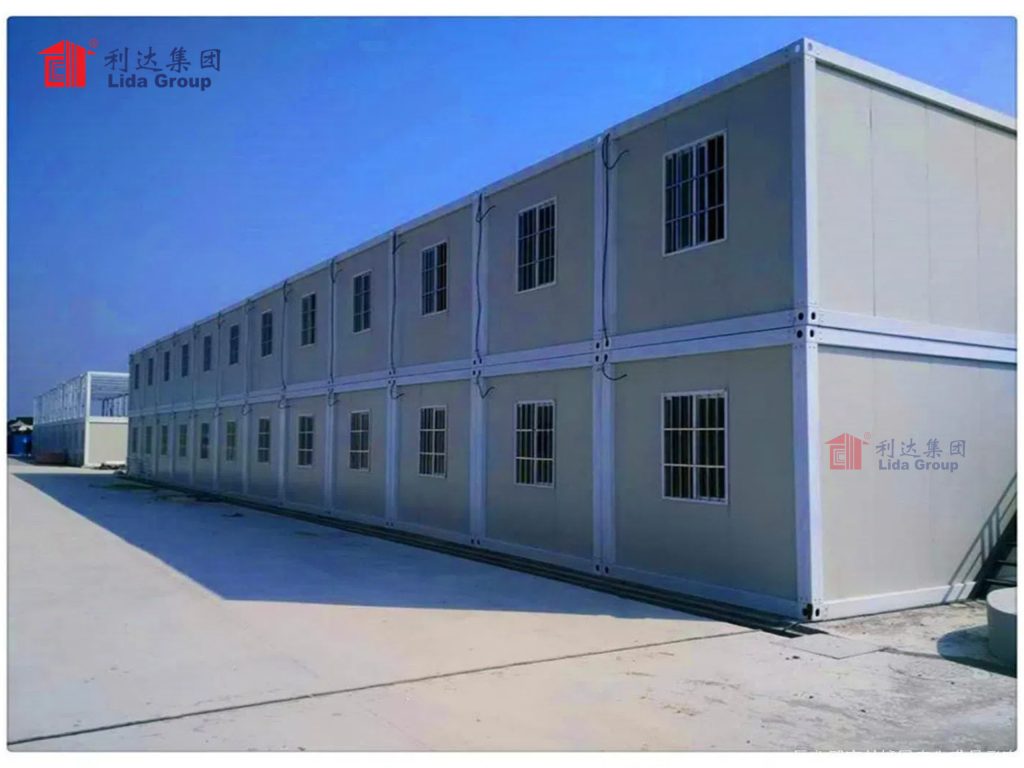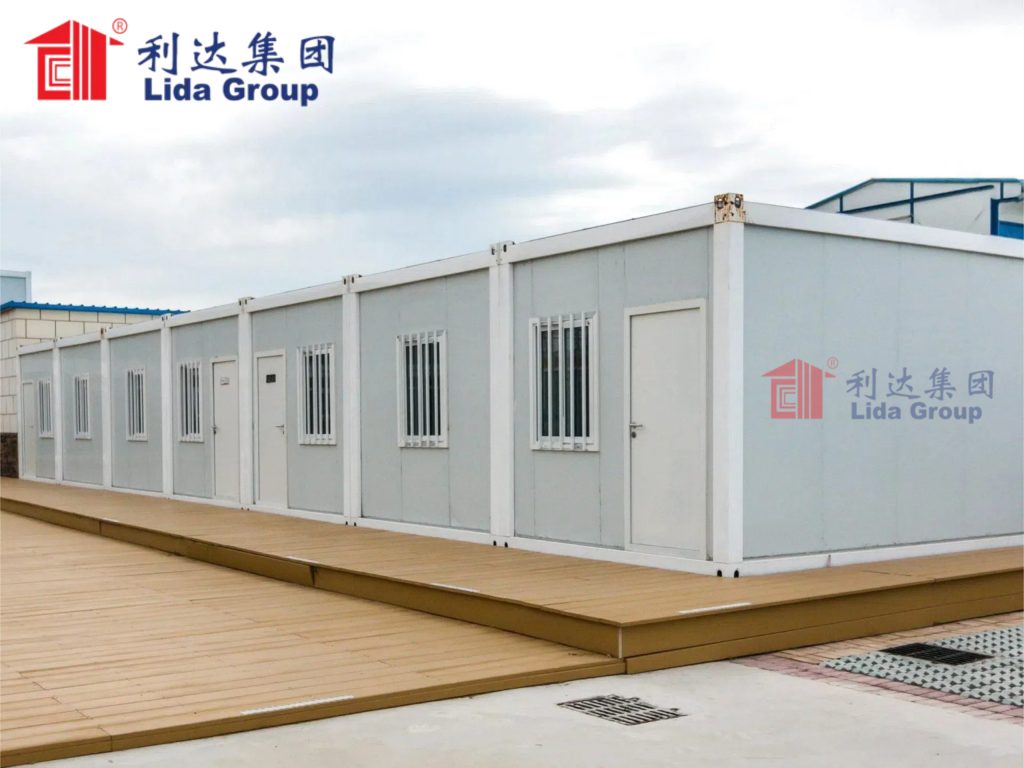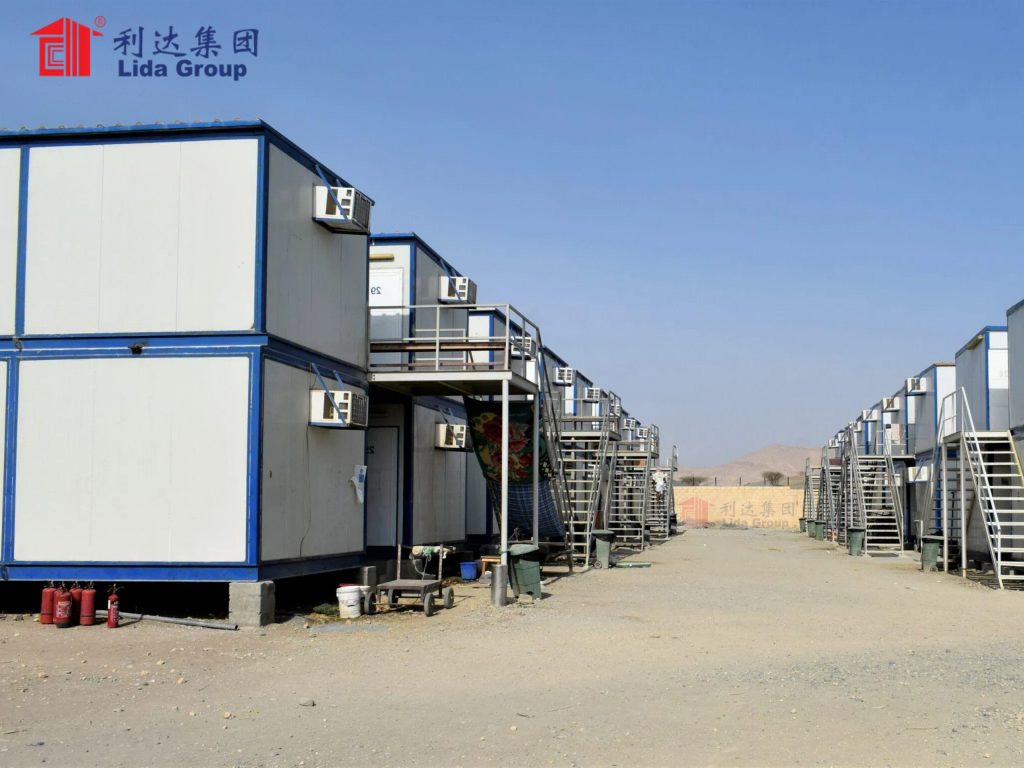Introduction to Lida Group and Modular Prefab Houses
Lida Group, a pioneering company in the field of modular prefab housing solutions, has established itself as a global leader by offering innovative, cost-effective, and environmentally friendly structures. Founded with a vision to revolutionize traditional construction methods, the company’s mission is clear: to provide sustainable and efficient living spaces that meet the diverse needs of communities worldwide. The core values driving Lida Group include sustainability, innovation, quality, and customer satisfaction.
The concept of modular prefab houses has been gaining traction globally due to its numerous advantages over conventional building techniques. These prefabricated homes are constructed in controlled factory environments, which significantly reduces construction time and minimizes waste. Moreover, they are designed to be highly adaptable, allowing for easy customization to suit different climates, terrains, and personal preferences. By focusing on efficiency and environmental responsibility, Lida Group ensures that their modular buildings not only save costs but also minimize ecological footprints.
In an era where climate change and resource depletion are pressing concerns, the importance of eco-friendly housing solutions cannot be overstated. Modular prefab houses from Lida Group represent a significant step forward in addressing these challenges. They offer a viable alternative to traditional housing that is both economically and ecologically advantageous. This article will explore how Lida Group’s modular prefab houses deliver cost-effective and eco-friendly housing solutions worldwide, examining various aspects such as design, manufacturing, logistics, and real-world applications. Through detailed analysis and case studies, we will uncover the profound impact these innovations have on global housing markets and communities.
### Design Features and Benefits of Modular Prefab Houses
Modular prefab houses offered by Lida Group stand out for their advanced design features that prioritize functionality, adaptability, and sustainability. One of the key attributes is their versatile structural design, which allows for easy assembly and disassembly. These houses are typically composed of standardized modules that can be combined in various configurations to create customized living spaces. Each module is built with high-quality materials and precision-engineered components, ensuring durability and longevity. The use of lightweight yet robust materials like steel frames and composite panels enables rapid installation while maintaining structural integrity.
A standout feature of Lida Group’s modular homes is their superior insulation capabilities. Advanced thermal insulation systems are integrated into the walls, roofs, and floors, providing excellent energy efficiency. This not only reduces heating and cooling costs but also enhances comfort levels inside the house. Additionally, many models incorporate double-glazed windows and energy-efficient HVAC systems, further contributing to reduced energy consumption. Such designs are particularly beneficial in regions with extreme weather conditions, as they ensure stable indoor temperatures year-round.
Another notable aspect is the incorporation of smart technologies within these modular homes. Smart home systems enable residents to control lighting, temperature, security, and even entertainment systems through centralized interfaces or mobile applications. These systems enhance convenience and safety while promoting energy conservation by optimizing resource usage. Furthermore, some models feature solar panels and rainwater harvesting systems, reducing reliance on external utilities and promoting self-sufficiency.
Adaptability is another hallmark of Lida Group’s modular prefab houses. These structures can be easily modified or expanded to accommodate growing families or changing needs. For instance, additional rooms or extensions can be seamlessly added without major disruptions. This flexibility makes them ideal for temporary housing solutions, emergency shelters, or long-term residences. In remote areas or disaster-prone zones, the ability to quickly deploy and modify these homes provides crucial support to affected populations.
From an aesthetic standpoint, Lida Group offers a wide range of customizable options, allowing clients to choose exterior finishes, interior layouts, and color schemes that align with their tastes and local architectural styles. This attention to detail ensures that each modular home fits harmoniously within its environment, blending practicality with visual appeal. Whether it’s a sleek modern design or a more traditional look, there are ample choices to cater to diverse preferences.
Overall, the combination of innovative design, superior insulation, smart technology integration, and adaptability positions Lida Group’s modular prefab houses as a cutting-edge solution in the global housing market. These features collectively contribute to creating comfortable, energy-efficient, and visually appealing living spaces that meet the needs of contemporary lifestyles while being mindful of environmental impacts.
Manufacturing Process and Quality Control
The manufacturing process at Lida Group is characterized by meticulous planning, rigorous quality control measures, and adherence to international standards. At the heart of this process lies a state-of-the-art production facility equipped with advanced machinery and automation systems. Every stage, from material procurement to final assembly, is optimized for efficiency and precision, ensuring that each modular prefab house meets the highest quality benchmarks.
The journey begins with the selection of premium raw materials, carefully chosen for their durability, sustainability, and performance characteristics. High-strength steel, recycled composites, and eco-friendly insulation materials are among the primary components used. These materials undergo thorough testing to verify compliance with stringent environmental and safety regulations. Once approved, they enter the production line where precision engineering takes center stage.
Advanced Computer Numerical Control (CNC) machines play a critical role in the fabrication process. These automated tools cut, shape, and assemble components with remarkable accuracy, minimizing human error and enhancing overall product consistency. Skilled technicians oversee the operations, ensuring that each module is fabricated according to exact specifications. The use of lean manufacturing principles further streamlines the workflow, reducing waste and maximizing productivity.
Quality assurance is a non-negotiable aspect of Lida Group’s manufacturing philosophy. Throughout the production cycle, multiple checkpoints are implemented to inspect every component and sub-assembly. From initial material inspections to final product testing, each phase undergoes rigorous scrutiny. Non-destructive testing methods such as ultrasonic scanning and X-ray imaging are employed to detect potential flaws, ensuring that only flawless units proceed to the next stage.
One of the distinguishing features of Lida Group’s production process is the integration of Building Information Modeling (BIM) technology. BIM software facilitates precise 3D modeling and virtual simulations, enabling engineers and designers to visualize the entire structure before physical construction begins. This digital preview helps identify any design inconsistencies or inefficiencies early on, thereby preventing costly revisions later in the project lifecycle.
Post-production, finished modules undergo comprehensive quality checks, including stress tests, water resistance trials, and thermal performance evaluations. These assessments confirm that each unit is structurally sound and capable of delivering optimal performance under various conditions. Only after passing all required tests do the modules receive certification and are prepared for shipping.
Environmental considerations are also integral to Lida Group’s manufacturing ethos. The company actively seeks ways to reduce its carbon footprint by implementing sustainable practices across its operations. Waste reduction initiatives, recycling programs, and energy-efficient processes are just a few examples of the steps taken to minimize environmental impact. Additionally, the use of renewable energy sources in the production facility further underscores the commitment to green manufacturing.
By combining cutting-edge technology, rigorous quality control, and a strong emphasis on sustainability, Lida Group ensures that each modular prefab house produced is not only of exceptional quality but also environmentally responsible. This holistic approach not only guarantees superior products but also reinforces the company’s reputation as a trusted provider of innovative and sustainable housing solutions worldwide.
Logistics and Assembly of Modular Prefab Houses
Efficient logistics and streamlined assembly processes are pivotal to the successful deployment of Lida Group’s modular prefab houses. To ensure seamless transportation and quick on-site setup, the company employs a sophisticated supply chain management system coupled with advanced logistical strategies. The process begins with careful planning to optimize routes and modes of transport, taking into account factors such as distance, terrain, and accessibility.
Once the modules leave the production facility, they are transported via specialized carriers designed to handle oversized loads. These carriers are equipped with GPS tracking systems, allowing real-time monitoring and coordination throughout the journey. This level of visibility ensures timely delivery and enables proactive adjustments to address any unforeseen delays or issues along the way. Additionally, the use of containerization techniques protects the modules during transit, minimizing the risk of damage and ensuring they arrive in pristine condition.
Upon arrival at the destination, the assembly process is meticulously coordinated to maximize efficiency. Each module is pre-fitted with necessary connections for utilities such as electricity, plumbing, and HVAC systems, facilitating swift integration once on-site. Modular construction inherently simplifies the assembly process, as most of the work has already been completed in the factory. This reduces the need for extensive on-site labor and minimizes disruptions to the surrounding environment.
The assembly team follows a well-defined sequence of operations, beginning with the foundation work and progressing to the placement and securing of individual modules. Advanced lifting equipment and precision alignment tools ensure accurate positioning and secure fastening. Any finishing touches, such as connecting utility lines, installing fixtures, and final inspections, are then carried out swiftly to bring the house to completion.
To illustrate the effectiveness of this approach, consider the case of a large-scale housing project in a remote area. Despite challenging logistical conditions, Lida Group successfully delivered and assembled hundreds of modular homes within a remarkably short timeframe. The use of strategic staging areas and pre-assembled kits enabled smooth transitions between transportation and assembly phases, demonstrating the scalability and adaptability of the system.
Moreover, the company leverages digital platforms and collaborative tools to facilitate communication between different stakeholders involved in the project. Real-time data sharing and project management software allow architects, engineers, and construction teams to stay synchronized, ensuring that all parties are aligned and working towards common goals. This level of coordination not only accelerates the assembly process but also enhances overall project outcomes.
In summary, Lida Group’s focus on efficient logistics and streamlined assembly processes exemplifies their commitment to delivering high-quality modular prefab houses quickly and reliably. By integrating advanced technology, meticulous planning, and robust collaboration, the company continues to set new standards in the global housing industry, proving that innovative solutions can indeed transform the way we build and live.
Environmental Impact and Sustainability Efforts
Lida Group’s dedication to environmental stewardship is evident through its comprehensive sustainability efforts and minimal environmental impact. Central to these endeavors is the company’s commitment to reducing carbon emissions and conserving natural resources throughout the lifecycle of its modular prefab houses. Several key initiatives highlight this commitment.
Firstly, the utilization of eco-friendly materials plays a crucial role in minimizing the environmental footprint. Lida Group prioritizes the use of recycled steel, reclaimed wood, and other sustainable building materials that have lower embodied energy compared to traditional construction materials. These materials not only reduce the demand for virgin resources but also decrease waste generation during the production process. Additionally, the company integrates bio-based insulation and low-VOC paints, further enhancing the health and sustainability of the living spaces.
Energy efficiency is another cornerstone of Lida Group’s sustainability strategy. The design of modular prefab houses incorporates advanced energy-saving features such as high-performance insulation, energy-efficient windows, and smart HVAC systems. Solar panels and wind turbines are often integrated into the structures, enabling residents to generate their own clean energy and reduce reliance on fossil fuels. These renewable energy sources not only lower operational costs but also contribute to reducing greenhouse gas emissions.
Water conservation is also a priority, with rainwater harvesting systems and greywater recycling technologies commonly included in Lida Group’s designs. These systems collect and treat water for reuse in irrigation, toilet flushing, and other non-potable uses, significantly reducing water consumption. Efficient plumbing fixtures and appliances further enhance water savings, making these homes highly resource-efficient.
Waste reduction is achieved through meticulous planning and execution. The modular construction method inherently produces less waste compared to traditional building techniques, as components are precisely manufactured off-site and assembled with minimal on-site modifications. Lida Group goes a step further by implementing zero-waste policies in its factories, where scrap materials are either reused or recycled. This closed-loop approach minimizes landfill contributions and maximizes resource recovery.
Furthermore, the company invests in continuous research and development to improve its sustainability practices. Collaborations with academic institutions and industry experts lead to the adoption of cutting-edge technologies and innovative solutions. For example, advancements in modular design allow for greater adaptability and longer lifespan, reducing the need for frequent replacements and renovations.
To quantify the environmental benefits, Lida Group conducts life cycle assessments (LCAs) on its products. These assessments evaluate the environmental impacts associated with all stages of a product’s life, from raw material extraction to end-of-life disposal. The results consistently demonstrate significant reductions in carbon emissions, energy consumption, and water usage when compared to traditional housing methods.
In conclusion, Lida Group’s multifaceted approach to sustainability encompasses the use of eco-friendly materials, energy efficiency, water conservation, waste reduction, and ongoing innovation. These efforts collectively contribute to mitigating the environmental impact of construction and housing, setting a benchmark for responsible and sustainable development in the global housing market.
Case Studies: Successful Applications of Modular Prefab Houses
Lida Group’s modular prefab houses have been successfully deployed in various contexts around the world, showcasing their versatility and effectiveness in meeting diverse housing needs. One notable application is in disaster relief scenarios, where speed and adaptability are paramount. After a devastating earthquake in South America, Lida Group was able to rapidly deploy several hundred modular homes to provide temporary shelter for displaced families. The ease of assembly and robust construction allowed for quick resettlement, restoring a sense of normalcy amidst chaos. Local authorities praised the durability and comfort of these units, noting that they provided immediate relief while also serving as transitional homes until permanent structures could be rebuilt.
Another compelling case study involves a large-scale urban redevelopment project in Asia. Faced with the challenge of accommodating a growing population in a densely populated city, planners turned to Lida Group’s modular prefab houses as a sustainable solution. The flexibility of these structures enabled the creation of multi-story residential complexes tailored to the specific needs of different demographics. The integration of smart technologies and energy-efficient systems not only enhanced the living experience but also reduced operational costs for residents. Community feedback highlighted the improved quality of life, citing quieter interiors, better air quality, and reduced utility bills as key benefits.
In rural areas, Lida Group’s modular homes have proven invaluable in addressing housing shortages and improving living conditions. A project in Africa focused on providing affordable housing to underserved communities. The modular design allowed for customization based on local customs and climate conditions, resulting in homes that were both culturally appropriate and environmentally friendly. Residents reported increased comfort and stability, leading to better health outcomes and economic opportunities. The success of this initiative demonstrated the potential of modular prefab houses to uplift marginalized communities and foster social equity.
Industrial applications also benefit from Lida Group’s innovative solutions. A mining operation in Australia faced the challenge of providing adequate accommodation for workers in remote locations. Modular prefab houses were selected for their durability, ease of transport, and rapid deployment capabilities. The units were designed to withstand harsh environmental conditions while offering amenities that promoted worker wellbeing. Feedback from employees emphasized the positive impact on morale and productivity, attributing it to the comfortable and secure living quarters provided by Lida Group.
These case studies underscore the broad applicability and transformative impact of Lida Group’s modular prefab houses. Whether addressing urgent humanitarian needs, supporting urban growth, enhancing rural livelihoods, or meeting industrial requirements, these structures consistently deliver reliable, cost-effective, and eco-friendly housing solutions. Their success stories reflect a commitment to innovation and sustainability, paving the way for future advancements in global housing solutions.
### Comparative Analysis: Modular Prefab Houses vs. Traditional Housing Solutions
When comparing Lida Group’s modular prefab houses to traditional housing solutions, several key differences emerge, particularly in terms of cost-effectiveness, environmental impact, and overall efficiency. One of the most significant advantages of modular prefab construction is the substantial reduction in construction time. Unlike traditional methods, which can take months or even years to complete, modular homes are fabricated in controlled factory settings and assembled on-site in a matter of weeks. This accelerated timeline translates into quicker occupancy and faster return on investment, especially beneficial for developers and investors seeking rapid project turnarounds.
Cost-effectiveness is another major differentiator. Modular prefab houses are generally more affordable than their traditional counterparts due to streamlined production processes and economies of scale. Factory-based manufacturing reduces labor costs and minimizes material waste, as components are precision-cut and pre-assembled. Moreover, the modular nature of these homes allows for incremental expansions or modifications, avoiding the need for costly renovations typical of traditional homes. The use of sustainable materials and energy-efficient systems further reduces long-term operating expenses, making these homes financially attractive over their lifecycle.
Environmentally, modular prefab houses present a stark contrast to traditional constructions. Traditional building practices often involve extensive excavation, material wastage, and higher carbon emissions from transportation and on-site activities. In contrast, Lida Group’s modular solutions are designed with sustainability in mind. The use of recycled materials, minimized waste, and incorporation of renewable energy sources contribute to a much smaller ecological footprint. Additionally, the controlled factory environment ensures stricter adherence to environmental regulations, reducing pollution and promoting cleaner construction practices.
Efficiency extends beyond just financial and environmental metrics. Modular prefab houses offer unparalleled flexibility and adaptability, catering to diverse architectural needs and geographical constraints. Customizable designs allow for seamless integration into various landscapes and climates, whereas traditional homes may require extensive site preparation and adaptation. Furthermore, the precision engineering inherent in modular construction leads to higher structural integrity and better performance under challenging conditions.
Despite these advantages, traditional housing solutions still hold certain merits, particularly in terms of aesthetic customization and cultural significance. However, the increasing demand for sustainable and cost-effective alternatives is driving a shift towards modular prefab homes. As awareness grows about the benefits of these innovative structures, more individuals and organizations are choosing modular solutions for their housing needs, heralding a new era in construction practices.
Conclusion: The Future of Housing with Lida Group’s Modular Prefab Houses
In conclusion, Lida Group’s modular prefab houses represent a revolutionary advancement in the global housing landscape, offering a blend of cost-effectiveness, sustainability, and adaptability that traditional construction methods struggle to match. The integration of eco-friendly materials, advanced energy-saving technologies, and smart home systems not only addresses pressing environmental concerns but also delivers tangible benefits to residents in terms of comfort and affordability. The streamlined manufacturing and logistics processes ensure rapid deployment and minimal disruption, making these homes ideal for diverse applications ranging from disaster relief to urban redevelopment.
Looking ahead, the future of housing with Lida Group’s modular prefab solutions appears promising. Continued innovation and technological advancements promise to further enhance the capabilities of these structures, potentially incorporating even more sophisticated features such as AI-driven maintenance systems and fully autonomous energy management. As global awareness of the importance of sustainable living grows, the demand for eco-conscious housing solutions is expected to rise, positioning Lida Group at the forefront of this transformation.
The potential for broader applications is vast. With ongoing research and development, modular prefab houses could become integral to addressing larger societal challenges, such as alleviating housing shortages in rapidly growing cities and providing resilient infrastructure in disaster-prone regions. The scalability and flexibility of these structures make them uniquely suited to meet evolving housing needs around the world.
Ultimately, Lida Group’s commitment to delivering high-quality, sustainable, and efficient housing solutions not only contributes to the well-being of individuals and communities but also sets a new standard for responsible and innovative construction practices. As we move forward, embracing these advancements will be crucial in shaping a more sustainable and equitable future for all.
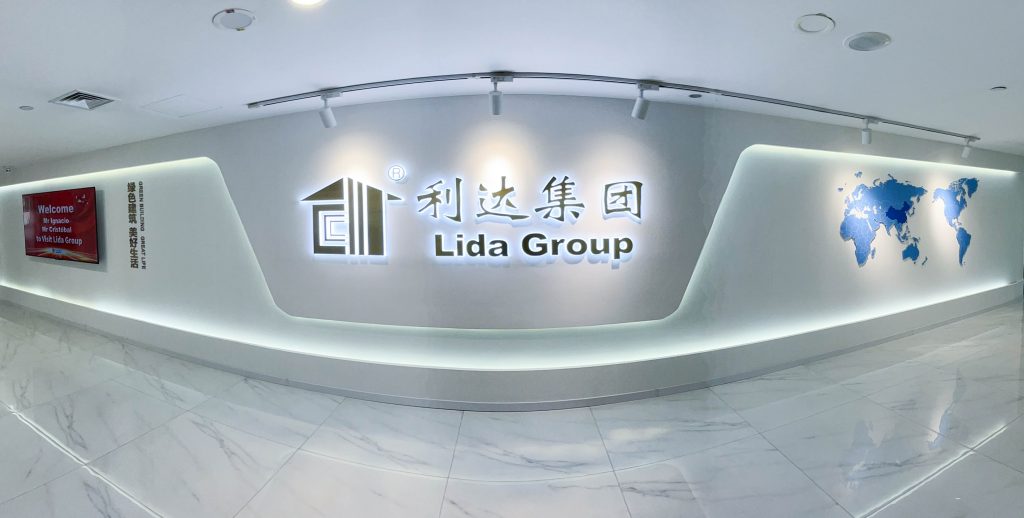
Related news
-
Sustainable and Scalable: Lida Group’s Temporary Labor Camps Set New Standards in Workforce Housing
2025-02-12 13:08:45
-
Lida Group Launches Mobile Container Apartments for Flexible and Modern Living Spaces
2025-02-12 11:37:01
-
Revolutionizing Housing: Lida Group’s Modular Prefab Houses Combine Quality and Speed in Construction
2025-02-12 10:14:53
contact us
- Tel: +86-532-88966982
- Whatsapp: +86-13793209022
- E-mail: sales@lidajituan.com


